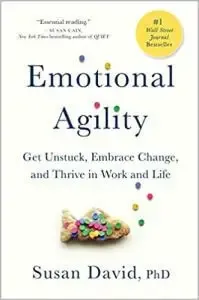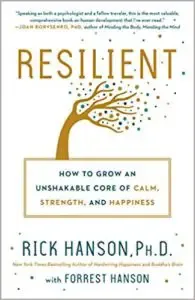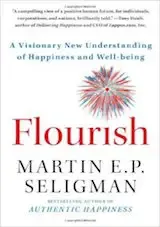What Is Emotional Health? (+ 11 Activities & Examples)
 The subjective, human experience of emotions comprises a wide, colorful continuum of feelings.
The subjective, human experience of emotions comprises a wide, colorful continuum of feelings.
The journey begins the day we are born and continues until the day we leave this earth. How we effectively handle the full spectrum determines our emotional health.
Some people are adept at navigating this complicated world of human emotion, and some people struggle to express their feelings in a healthy way. Disruption in the full expression of emotion is connected to ill health.
Read on to discover the science of emotional health and how you too can be a healthy emotional navigator.
Before you read on, we thought you might like to download our three Emotional Intelligence Exercises for free. These science-based exercises will not only enhance your ability to understand and work with your emotions, but also give you the tools to foster the emotional intelligence of your clients, students, or employees.
This Article Contains:
- What Is Emotional Health?
- 9 Characteristics of the Emotionally Healthy Person
- Real-Life Examples
- Why Is Emotional Health Important?
- 4 Facts and Proven Benefits
- Emotional Health vs. Mental Health
- 5 Ways to Improve and Maintain Your Emotional Health
- 7 Activities
- Assessing Emotional Health With Useful Questionnaires, Tests, and Scales
- 7 Relevant Questions for Your Sessions
- Popular Books on the Topic
- 4 Final Tips on Improving Emotional Health
- 5 Inspiring Quotes
- A Take-Home Message
- References
What Is Emotional Health?
Emotional health is a person’s ability to accept and manage feelings through challenge and change. Someone who is emotionally healthy can allow their emotions to be digestible. The mundane hassles of daily life offer opportunities to practice responses, rather than reactions to allow emotional health to flourish.
Overall health includes physical, emotional, intellectual, social, and spiritual aspects. When they are in balance and alignment, human beings thrive. Each of these areas of life will influence the others.
Emotional health includes both emotional intelligence and emotional regulation. When the subjective experience of emotions is appropriate over a sustained period, emotional health is thought to be present. Positive affect will be apparent in mundane, daily activities.
The construct of emotional wellbeing lies within the broader understanding of mental health. The lack of emotions does not equal emotional health, just as the lack of mental illness does not equal mental health. Someone suppressing emotions, especially from childhood, may not be as emotionally healthy as someone vulnerable enough to express their emotions.
Daily life offers a continuous series of ups and downs. Like ocean waves, our days come with highs and lows. An emotionally healthy individual will be able to ride the waves of feelings without being disrupted by a big, emotionally disruptive wave.
Taking into consideration differences in material wealth and individual life circumstances is important. Having financial means to more efficiently self-manage emotions makes emotional health more easily attainable. Environmental factors do influence the abilities to express feelings (Enrich.org, 2021).
Emotional distress leaves people susceptible to physical illness. Some studies have shown that ailments like cardiovascular disease and immune system repression can be linked to emotional distress (Stewart-Brown, 1998). Studies on emotional distress and the underlying neurological circuitry indicate a connection with substance abuse and other dysfunctional behaviors (Sinha, Lacadie, Skudlarski, & Wexler, 2004).
There is potential emotional distress around every corner. Someone who practices a healthy emotional lifestyle will be better able to handle big waves when the swell builds. Like a physically healthy lifestyle, the long-term benefits are abundant.
9 Characteristics of the Emotionally Healthy Person

This ability develops throughout childhood but can be strengthened, like a muscle, in adulthood.
Working hand in hand with self-awareness is self-acceptance. Emotionally healthy people accept themselves and can handle adversity with clarity. An emotionally healthy person might even allow themselves space to have a “behind closed doors” temper tantrum to allow anger to move through them.
High levels of self-care are present in those who experience emotional health. Self-compassion and care for one’s physical body are important to people who also place importance on emotional health. Care for the whole self is intentional and regularly practiced.
Another characteristic of an emotionally healthy person is emotional agility. An emotionally healthy person is not immune to setbacks or adversity. However, with an open mind and a curious thought process, thriving through difficulties is possible.
Having strong coping skills is another characteristic of the emotionally healthy person. Practicing these skills when times are calm will result in higher levels of resilience when things are not so calm. It’s like preparing for battle. Adversity is inevitable because this is real life. Emotional capital is what you build when at peace.
An emotionally healthy person treats others with kindness and integrity. They do so without expectation of reward. They interact with the people around them with curiosity and compassion.
Living with purpose is another characteristic of an emotionally healthy person. People living in purpose will think about their inner experiences less and focus on how their experience can serve others. They allow emotions to pass with acknowledgment and release them in favor of a larger picture.
An emotionally healthy person manages stress well and regularly practices moments of serenity. Good leaders get calm when circumstances get chaotic. Self-mastery requires the same.
Real-Life Examples
The world is full of opportunities to practice emotional health. Time is our most precious commodity, yet we continue to underutilize it for our wellbeing. Emotionally healthy people find balance and thrive through adversity.
Consider Emma, for example:
Emma is a self-motivated career woman. Her inner drive and work ethic are admired and celebrated regularly at her job as a stockbroker. She perseveres through levels of high stress and constant changes in the market. Her navigation of being a woman in a predominantly male profession takes grit. People speak about her in terms of grit and willpower.
This is surface Emma. Beneath what is seen is how she interacts with the people at her local market. She is kind and friendly. Her daily meditation practice keeps her appreciative of the serene present. Emma regularly invests time in connecting with her loved ones. Though she works hard, long hours, she creates space for herself to build self-awareness and peace.
Emma takes good care of her physical body. Her worth is not self-measured in the numbers she brings in for her company. Emma accepts that mistakes will be made, but does not allow them to derail her progress.
In this example, the chaotic and ever-changing world of the stock market could create a powder keg of emotions. Pressured by time and successful outcomes could put Emma into a state where she snaps at everyone around her.
Without emotional health, she could slip into unhealthy coping mechanisms like abusing drugs or alcohol. Stress could deteriorate her hippocampus, causing her decision making to become compromised. Being emotionally healthy helps Emma show up in her life every day as her higher self.
Consider Ted:
Ted is a therapist. He sits with others’ experiences of trauma all day long. He holds space for others to heal and seek pathways to their own emotional health. Ted feels the pain of his patients because he is empathetic. Ted then goes home to his loving family and serves as a supportive husband and father. He even acts as the baseball coach for a little league team.
This is surface Ted. Beneath his exterior, Ted is deploying strategies for emotional health all day long. At work, Ted uses his empathic ability as a slide, rather than a sponge. In between therapy sessions, Ted takes intentional glances at his positivity portfolio. During his free time, Ted exercises to keep his body healthy and fit.
When Ted is with his family, he is present. He gets frustrated, like any other parent, but he is fully aware of and speaks his values to his family while encouraging them to do the same. They are active in their church and have a strong spiritual faith.
In this example, Ted is in a profession with a high rate of burnout. Without emotional health, his livelihood would not be sustainable in the long term. Ted’s use of a positivity portfolio raises his positivity ratio, enabling him to flourish despite consistent, daily negative affect in his patients.
Without emotional health, Ted could fall into habits where he neglects his family and himself. His emotional healthy lifestyle allows for Ted to show up as his higher self.
Why Is Emotional Health Important?

Social interaction and integration is a necessary part of daily life. People who have optimal emotional health can appropriately interact with others, whether in times of stress or in times of peace. Without emotional health, a wide variety of emotional disruptions could develop, in addition to physical ailments.
Take a moment to imagine the types of behaviors that occur when someone lacks emotional health. This doesn’t necessarily mean mental illness. Someone without optimal emotional health likely shows signs of stress. They may verbally snap at those around them.
Emotional health matters, to all ages, everywhere.
4 Facts and Proven Benefits
There are plentiful benefits to emotional health. What makes someone emotionally healthy will vary from individual to individual. Here are some points and proven benefits that you could weave into your emotional wellbeing today.
According to the World Health Organization, depression is one of the leading causes of disability and affects 264 million people (James et al., 2018). Low rates of emotional health are directly linked with rates of depression. The ability to explain emotions with a positive explanatory style aids people in preventing depression (Kowalenko et al., 2002).
Repression of emotions has a direct impact on physical and psychological health (Patel & Patel, 2019). Holding disruptive emotions in favor of an appropriate outward appearance contributes to lower levels of overall wellbeing. Overused emotional regulation can be problematic and disruptive. Rates of anxiety and depression are soaring because of the lack of ability to express emotions.
Studies have shown that spiritually healthy people live longer lives (Chida, Steptoe, & Powell, 2009). It is purported that individuals with a higher level of spiritual health show higher instances of emotional health as well. A holistic approach to health shows the benefits of interweaving areas of health to overall wellbeing (Hawks, 2004).
Perceived time pressure causes stress and a negative impact on emotional wellbeing (Gärling, Krause, Gamble, & Hartig, 2014). Impediments to goal progress are impacted by time pressure. Teaching people effective time management may lead to improvement in emotional health.
Emotional Health vs. Mental Health

However, there are marked differences.
The World Health Organization has taken steps to create a robust definition of mental health.
Mental health is a dynamic state of internal equilibrium that enables individuals to use their abilities in harmony with the universal values of society.
Basic cognitive and social skills; the ability to recognize, express, and modulate one’s own emotions, as well as empathize with others; the flexibility to cope with adverse life events and function in social roles; and harmonious relationships between body and mind represent essential components of mental health and contribute, to varying degrees, to the state of internal equilibrium (Galderisi, Heinz, Kastrup, Beezhold, & Sartorius, 2015).
Mental health has its benefits, which can be realized by conscious intentions. The same may be said of emotional health, which contributes to global wellbeing. Human beings experience both positive and negative emotions. Emotional health enables people to experience and express those emotions without becoming stalled within them.
It is vital to empower children with a vocabulary for emotions and the ability to speak about them. Fully processing emotions and constructively utilizing them are skills that will help kids for the rest of their lives. Though we cannot live in a constant state of happiness, knowing how to navigate the full range of emotions is essential.
When emotional health is in jeopardy, it is always encouraged to seek help. If you or someone you know is unable to express their emotions appropriately, counseling is a great place to start. A skilled counselor will provide a safe place to express feelings.
How emotionally healthy are you? – The School of Life
5 Ways to Improve and Maintain Your Emotional Health
Practicing mindfulness is a way to improve emotional health that is offered in a wide variety of activities. The benefits of mindfulness are plentiful and well documented. Conscious improvements in mindfulness practices provide fuel for resilience.
Nurturing social connections is another area used to improve and maintain emotional health. A landmark study found that a lack of social connection has more of an impact on your wellbeing than smoking or obesity (House, Landis, & Umberson, 1988).
Social connection creates a positive feedback loop for wellbeing, manifesting in social, emotional, and psychological impact. You don’t have to have a million friends, but you do need a few reliable, supportive friends to reap the most benefit.
Adding measures to manage stress is another way to improve emotional health. Through effective time management, physical exercise, and acceptance that there will be things that we cannot control, we can effectively reduce our stress levels.
Read our related post for more on recognizing the symptoms of stress.
Appropriately expressing your emotions is another way to improve emotional health. Some people enjoy journaling. Others enjoy chatting with friends or loved ones.
Practicing putting words to the emotions flowing in and out of our lives helps us release those emotions. There are many ways to express emotions creatively.
Improvement in self-awareness will improve emotional health too. Reflecting on what patterns of negative expression are present is a great place to start. This introspection can lead to an improvement in emotional regulation and emotional intelligence.
7 Activities

One of the fun and helpful activities suggested in her book, Positivity, is the positivity portfolio.
A positivity portfolio is a collection of the following positive emotions: joy, gratitude, serenity, interest, hope, pride, amusement, inspiration, awe, and love. Through a series of questions, you can walk through these positive emotions and then gather “artifacts” to cultivate those emotions, fueling resilience.
Based on her book, the Build An Emotions Portfolio is a very helpful tool for building that positivity portfolio and improving emotional health.
A Meditation for Radical Acceptance to build emotional awareness and acceptance is a helpful activity. Allowing space for emotions to be explored is a powerfully transformative activity. Any form of meditation is likely helpful. If this one doesn’t suit you, there are many options out there.
There are many ways to reduce stress. The following activities are simple changes that can be made in your daily life to reduce stress and the detrimental reactions to that stress.
- Prioritize physical exercise
- Eat a balanced diet
- Improve sleep hygiene
- Practice deep breathing exercises
- Increase opportunities for flow states
Seek social connection to improve your emotional health. Reach out to the people in your life who have made a difference for you. Send them a note or call them if it’s impossible to meet with them in person. Cultivate your friendships and social connections with loving-kindness.
Assessing Emotional Health With Useful Questionnaires, Tests, and Scales
The DERS is a test used to measure how someone regulates emotions. It has many versions and has been used in empirical studies. It is used to measure someone’s self-reported measures of subjective emotional ability (Hallion, Steinman, Tolin, & Diefenbach, 2018).
Explicitly used for mindfulness are these useful tests and questionnaires.
Though the Satisfaction With Life Scale was developed to give a global view of life satisfaction, it can also help understand a client’s cognitive judgment of life satisfaction. It could help develop awareness.
The MAAS is a scale to measure one’s mindfulness.
The Mental Health Continuum – Short Form was developed to measure emotional wellbeing (Keyes, 2002). This scale measures three different forms of wellbeing: emotional wellbeing, social wellbeing, and psychological wellbeing.
The scale has been empirically proven across cultures and has been translated into a variety of languages. Permission to utilize this scale can be requested via email.
7 Relevant Questions for Your Sessions
When working with a client, it is helpful to ask questions about their emotional health. Here are a few questions that can help.
- How do you express your emotions?
- Who supports you socially?
- What role does positivity play in your day?
- What makes you avoid “losing it?”
- What are your time management strategies?
- Describe your relationship with anger.
- How do you cope when times get tough?
Popular Books on the Topic
This book list has empirically based content on fueling resilience and emotional health. Developing emotional health, like any other area of wellbeing, takes intentional work. These books offer great pathways on how to develop your practice.
1. Emotional Agility; Get Unstuck, Embrace Change, and Thrive in Work and Life – Susan David

Rather than forcing ‘positive thinking,’ David stresses kindness and curiosity in emotional processing.
Available on Amazon.
2. Positivity: Top-Notch Research Reveals the 3-to-1 Ratio That Will Change Your Life – Barbara L. Fredrickson

Fredrickson’s interweaving of science and personal experience is relatable and helpful.
Creating a practice of raising your personal positivity ratio is brilliant.
Available on Amazon.
3. Resilient: How to Grow an Unshakable Core of Calm, Strength, and Happiness – Rick Hanson PhD and Forrest Hanson

Dr. Hanson’s scientific grounding, weaved with helpful real-life examples, make this book a cornerstone for wellness.
Offered along with this book is a series of trainings in building resilience.
Available on Amazon.
4. Flourish: A Visionary New Understanding of Happiness and Well-Being – Martin E. P. Seligman

Available on Amazon.
4 Final Tips on Improving Emotional Health
If the above activities and examples were not enough, we share a final short list of four tips for improving emotional health.
1. Give it time
Emotional health is not something anyone can realize overnight. It took your entire life to develop your subjective understanding of the experience of emotions. It will also take time to develop the awareness for emotional regulation and emotional intelligence that build emotional health.
2. Learn from mistakes
Patterns of reaction and response can be tough to break in real time. When facing a common trigger that creates an eruption of anger or other emotional response that is inappropriate, learn from it. Reflect on what you can do differently the next time you’re faced with this trigger.
3. Cultivate kindness
Every other human being is experiencing emotions too. Developing a compassionate outlook when interacting with others permits them to do the same. It leaves room to allow yourself to be human also.
4. Practice forgiveness
Some people find it cathartic to forgive themselves and others who have done them harm. Though it is not a requirement, forgiveness can open room for emotions to move if they are stuck.
5 Inspiring Quotes
You’re not the only one who’s made mistakes, but they’re the only thing that you can truly call you own.
Billy Joel, Only Human (Second Wind)
If your emotional abilities aren’t in hand, if you don’t have self-awareness, if you are not able to manage your distressing emotions, if you can’t have empathy and have effective relationships, then no matter how smart you are, you are not going to get very far.
Daniel Goleman (as cited in Dozier, 2010)
What stress really does, though, is deplete willpower, which diminishes your ability to control those emotions.
Roy Baumeister
Not only do happy people endure pain better and take more health and safety precautions when threatened, but positive emotions undo negative emotions.
Martin Seligman
The remedy is to look deeper and recognize that we human beings are physically, mentally, and emotionally the same.
Dalai Lama
A Take-Home Message
Emotional health has far-reaching benefits. Where people land on the continuum between languishing and flourishing will greatly depend on their ability to feel, understand, and express their emotions. The incredible thing about emotional health is that everyone can work toward it.
Allowing emotions to move through us as a digestible part of our wellbeing leads us on that continuum toward truly flourishing lives. Everyone can find a place to begin. With dedicated attention and care, emotional health can become prioritized and then realized.
Thanks for reading.
We hope you enjoyed reading this article. Don’t forget to download our three Emotional Intelligence Exercises for free.
- Chida, Y., Steptoe, A., & Powell, L. H. (2009). Religiosity/spirituality and mortality. Psychotherapy and Psychosomatics, 78(2), 81–90.
- David, S. (2016). Emotional agility: Get unstuck, embrace change, and thrive in work and life. Avery.
- Dozier, J. O. (2010). The weeping, the window, the way. Tate.
- Enrich.org (24 March 2021). Data shows strong link between financial wellness and mental health. Retrieved from https://www.enrich.org/blog/data-shows-strong-link-between-financial-wellness-and-mental-health
- Fredrickson, B. L. (2009). Positivity: Top-notch research reveals the 3-to-1 ratio that will change your life. Harmony.
- Gärling, T., Krause, K., Gamble, A., & Hartig, T. (2014). Emotional well-being and time pressure. PsyCh Journal, 3(2), 132–143.
- Galderisi, S., Heinz, A., Kastrup, M., Beezhold, J., & Sartorius, N. (2015). Toward a new definition of mental health. World Psychiatry: Official journal of the World Psychiatric Association (WPA), 14(2), 231–233.
- Hallion, L. S., Steinman, S. A., Tolin, D. F., & Diefenbach, G. J. (2018). Psychometric properties of the Difficulties in Emotion Regulation Scale (DERS) and its short forms in adults with emotional disorders. Frontiers in Psychology, 9, 539.
- Hanson, R., & Hanson, F. (2020). Resilient: How to grown an unshakable core of calm, strength, and happiness. Harmony.
- Hawks, S. (2004). Spiritual wellness, holistic health, and the practice of health education. American Journal of Health Education, 35(1), 11–18.
- House, J., Landis, K., & Umberson, D. (1988). Social relationships and health. Science, 241(4865), 540–545.
- James, S. L., Abate, D., Abate, K. H., Abay, S. M., Abbafati, C., Abbasi, N., … Abdelalim, A. (2018). Global, regional, and national incidence, prevalence, and years lived with disability for 354 diseases and injuries for 195 countries and territories, 1990–2017: A systematic analysis for the Global Burden of Disease Study 2017. The Lancet, 392(10159), 1789–1858.
- Keyes, C. L. M. (2002). The mental health continuum: From languishing to flourishing in life. Journal of Health and Social Behavior, 43(2), 207–222.
- Kowalenko, N., Wignall, A., Rapee, R., Simmons, J., Whitefield, K., & Stonehouse, R. (2002). The ACE program: Working with schools to promote emotional health and prevent depression. Youth Studies Australia, 21(2), 23–30.
- Patel, J., & Patel, P. (2019) Consequences of repression of emotion: Physical health, mental health, and general well being. International Journal of Psychotherapy Practice and Research, 1(3), 16–21.
- Seligman, M. E. P. (2002). Authentic happiness. Nicholas Brealey.
- Seligman, M. E. P. (2012). Flourish: A visionary new understanding of happiness and well-being. Atria Books.
- Stewart-Brown, S. (1998). Emotional wellbeing and its relation to health. British Medical Journal, 317(7173), 1608–1609.
- Sinha, R., Lacadie, C., Skudlarski, P., & Wexler, B. E. (2004). Neural circuits underlying emotional distress in humans. Annals of the New York Academy of Sciences, 1032(1), 254–257.
Let us know your thoughts
Read other articles by their category
- Body & Brain (42)
- Coaching & Application (56)
- Compassion (26)
- Counseling (50)
- Emotional Intelligence (24)
- Gratitude (17)
- Grief & Bereavement (21)
- Happiness & SWB (39)
- Meaning & Values (25)
- Meditation (20)
- Mindfulness (44)
- Motivation & Goals (43)
- Optimism & Mindset (32)
- Positive CBT (25)
- Positive Communication (20)
- Positive Education (44)
- Positive Emotions (30)
- Positive Leadership (13)
- Positive Psychology (32)
- Positive Workplace (33)
- Productivity (16)
- Relationships (42)
- Resilience & Coping (34)
- Self Awareness (20)
- Self Esteem (36)
- Software & Apps (22)
- Strengths & Virtues (30)
- Stress & Burnout Prevention (33)
- Theory & Books (44)
- Therapy Exercises (35)
- Types of Therapy (58)




What our readers think
Great article! Couldn’t agree more with your points! Look forward to the upcoming posts 🙂
Great post and well researched.
It will be of great use for my research.
Many thanks.
Hi Cephas,
So glad you found the post useful. If you’d like more reading on the topic of emotions, we offer a free emotional intelligence exercise pack, which you can download for free here.
Best of luck with your research.
– Nicole | Community Manager
Many thanks to you all that took part in preparation of this article. Its been so helpful to me and I hope to share and also put all I have learnt into practice ASAP 🙂
An excellent article. I would like to use some of the ‘golden nuggets’ during my research. Many thanks.
It was a great informational read. Simple yet efficient use of language. Thank you for sharing this.
an excellent work ,highly useful for counsellors to apply during this period of lockdown.
Great write out provides clarity on mental health and practical activities to manage both mental health and emotional health. Much obliged!
It was insightful and a great eye opener for me as well as those who do face emotional barriers.
Indeed a great learning and will certainly practice the ways suggested
It was insightful and a great eye opener for me as well as those who do face emotional barriers in the path of achieving the right emotional health.
Indeed a great learning and will certainly practice the ways suggested
An excellent article. I will use some of the ‘golden nuggets’ during my training and coaching. Many thanks.
Great post! Looking forward to delving more into the subject to use in my life coaching practice.
Celebrating that with you and your clients! I know mine have absolutely benefitted from having more information about their emotional health.